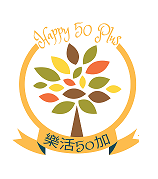When I told my friends I was writing a book on older women like us, they immediately protested, “I am not old.” What they meant was that they didn’t act or feel like the cultural stereotypes of women their age. Old meant bossy, useless, unhappy and in the way. Our country’s ideas about old women are so toxic that almost no one, no matter her age, will admit she is old.
當我告訴我的朋友,我正在寫一本關於我們這樣的老年女性的書時,她們立即抗議,「我不老。」她們的意思是,她們並沒有表現出或覺察到那種對於這個年齡段的女性的文化刻板印象。老意味著專橫、無用、不悅,以及擋道。我們國家關於老年女性的想法如此惡毒,以至於幾乎沒有人會承認她已經老了,不管她的年齡幾何。
In America, ageism is a bigger problem for women than aging. Our bodies and our sexuality are devalued, we are denigrated by mother-in-law jokes, and we’re rendered invisible in the media. Yet, most of the women I know describe themselves as being in a vibrant and happy life stage. We are resilient and know how to thrive in the margins. Our happiness comes from self-knowledge, emotional intelligence and empathy for others.
在美國,年齡歧視對女人們來說是比衰老本身更大的問題。我們的身體和我們的性慾貶值,我們被關於丈母娘的笑話詆毀,我們在媒體上被忽視。然而,我認識的大多數女性都將自己描述為處於精彩、幸福的人生階段。我們適應能力很強,知道如何在邊緣地帶過得有聲有色。我們的快樂來自自我認知、情商和對他人的同理心。
Most of us don’t miss the male gaze. It came with catcalls, harassment and unwanted attention. Instead, we feel free from the tyranny of worrying about our looks. For the first time since we were 10, we can feel relaxed about our appearance. We can wear yoga tights instead of nylons and bluejeans instead of business suits.
我們大多不懷念男性的盯視。它伴隨著噓聲、騷擾和不請自來的關注。相反,我們已經從這種擔心外表的暴政中走出。自從10歲以來,我們第一次對外表感到放鬆。我們可以穿緊身瑜伽褲而不是尼龍褲襪,牛仔褲而不是商務套裝。
Yet, in this developmental stage, we are confronted by great challenges. We are unlikely to escape great sorrow for long. We all suffer, but not all of us grow. Those of us who grow do so by developing our moral imaginations and expanding our carrying capacities for pain and bliss. In fact, this pendulum between joy and despair is what makes old age catalytic for spiritual and emotional growth.
然而,在這個發展階段,我們面臨著巨大的挑戰。過不了多久我們可能都得遭遇巨大的悲傷。我們都在承受痛苦,但並非所有人都在成長。我們中間那些成長的人是通過培養道德想像力和擴大對悲喜的承載能力來實現的。事實上,正是這種快樂與絕望之間的擺動使年齡催化出精神和情感上的成長。
By our 70s, we’ve had decades to develop resilience. Many of us have learned that happiness is a skill and a choice. We don’t need to look at our horoscopes to know how our day will go. We know how to create a good day.
到70歲時,我們已經有幾十年的時間來培養適應能力。我們中的許多人都了解到,幸福是一種技能和選擇。我們不需要看那些占星術來了解我們的生活會怎樣。我們知道如何創造美好的一天。
We have learned to look every day for humor, love and beauty. We’ve acquired an aptitude for appreciating life. Gratitude is not a virtue but a survival skill, and our capacity for it grows with our suffering. That is why it is the least privileged, not the most, who excel in appreciating the smallest of offerings.
我們已經學會了每一天都去尋找幽默、愛和美。我們已經獲得了感恩生命的天賦。感恩並不是一種美德,而是一種生存技能,我們的這種能力隨著我們的痛苦生長。這就是為什麼那些最少受到優待人——而非最多——才善於去感激微不足道的施與。
Many women flourish as we learn how to make everything workable. Yes, everything. As we walk out of a friend’s funeral, we can smell wood smoke in the air and taste snowflakes on our tongues.
當我們學會如何讓一切可行時,許多女人會意氣風發起來。是的,一切。當我們走出某個朋友的葬禮時,我們可以聞到空氣中的燃木煙味,我們的舌尖可以嘗到雪花的味道。
Our happiness is built by attitude and intention. Attitude is not everything, but it’s almost everything. I visited the jazz great Jane Jarvis when she was old, crippled and living in a tiny apartment with a window facing a brick wall. I asked if she was happy and she replied, “I have everything I need to be happy right between my ears.”
我們的快樂建立在態度和目標上。態度不是一切,但它幾乎是一切。我曾拜訪偉大的爵士樂手簡·賈維斯(Jane Jarvis),那時她年事已高,腿腳不便,生活在一個窗戶面朝一堵磚牆的小公寓裡。我問她是否幸福,她回答說:「在我兩耳之間有著足以讓我感到幸福的東西。」
We may not have control, but we have choices. With intention and focused attention, we can always find a forward path. We discover what we are looking for. If we look for evidence of love in the universe, we will find it. If we seek beauty, it will spill into our lives any moment we wish. If we search for events to appreciate, we discover them to be abundant.
我們可能無法控制,但我們還有選擇。有了目標,專心致志,我們總能找到前進的道路。我們可以發現我們在尋找什麼。如果我們尋找宇宙中愛的證據,我們會找到的。如果我們追求美,它可以在我們想要的任何時候湧進生活。如果我們尋找值得欣賞的事物,我們會發現這樣的事無窮無盡。
There is an amazing calculus in old age. As much is taken away, we find more to love and appreciate. We experience bliss on a regular basis. As one friend said: “When I was young I needed sexual ecstasy or a hike to the top of a mountain to experience bliss. Now I can feel it when I look at a caterpillar on my garden path.”
人到老年會有一種驚人的得失計算。我們失去了很多東西,但與此同時,我們可以發現更多值得去愛與欣賞的東西。我們可以經常體驗到幸福。就像一個朋友說的:「當我年輕的時候,要體驗幸福,我需要性愛的陶醉,或者徒步到山頂。現在,當我看到花園小徑上的毛毛蟲,我就能感受到到幸福。」
Older women have learned the importance of reasonable expectations. We know that all our desires will not be fulfilled, that the world isn’t organized around pleasing us and that others, especially our children, are not waiting for our opinions and judgments. We know that the joys and sorrows of life are as mixed together as salt and water in the sea. We don’t expect perfection or even relief from suffering. A good book, a piece of homemade pie or a call from a friend can make us happy. As my aunt Grace, who lived in the Ozarks, put it, “I get what I want, but I know what to want.”
年長的女性懂得了合理期望的重要性。我們知道不是所有願望都會得到滿足,這個世界不是為了取悅我們而存在,其他人,尤其是我們的孩子,不會等待我們的意見和判斷。我們知道,人生的喜怒哀樂就像大海裡的鹽和水一樣融為一體。我們不期待完美,甚至不期待從痛苦中解脫。一本好書,一塊自製的餡餅或一個朋友的電話可以使我們快樂。就像我住在歐扎克的格蕾絲阿姨說的那樣:「我得到了我期待的,但我知道應該期待什麼。」
We can be kinder to ourselves as well as more honest and authentic. Our people-pleasing selves soften their voices and our true selves speak more loudly and more often. We don’t need to pretend to ourselves and others that we don’t have needs. We can say no to anything we don’t want to do. We can listen to our hearts and act in our own best interest. We are less angst-filled and more content, less driven and more able to live in the moment with all its lovely possibilities.
我們可以對自己更好,也可以更加誠實和真誠。我們性格裡取悅他人的那一面會弱下來,而我們真實的那一面則會更響亮、更經常地發聲。我們不需要對自己和他人假裝我們沒有需求。我們可以拒絕任何我們不想做的事情。我們可以傾聽自己的心聲,為自己的最大利益而行動。我們不再那麼焦慮,我們更滿足,更不受逼迫,更能活在充滿美好可能性的當下。
Many of us have a shelter belt of good friends and long-term partners. There is a sweetness to 50-year-old friendships and marriages that can’t be described in language. We know each other’s vulnerabilities, flaws and gifts; we’ve had our battles royal and yet are grateful to be together. A word or a look can signal so much meaning. Lucky women are connected to a rich web of women friends. Those friends can be our emotional health insurance policies.
我們中的許多人都有好朋友和長期伴侶組成的防護林。持續50年的友誼和婚姻會有一種無法用語言描述的甜蜜。我們知道彼此的弱點、缺點和天賦;我們有過爭鬥,但依然感激能夠彼此相伴。一個詞或一個眼神可以傳達很多意思。幸運的女人總會擁有大量女性朋友。她們可以成為我們情感健康的保單。
The only constant in our lives is change. But if we are growing in wisdom and empathy, we can take the long view. We’ve lived through seven decades of our country’s history, from Truman to Trump. I knew my great-grandmother, and if I live long enough, will meet my great-grandchildren. I will have known seven generations of family. I see where I belong in a long line of Scotch-Irish ancestors. I am alive today only because thousands of generations of resilient homo sapiens managed to procreate and raise their children. I come from, we all come from, resilient stock, or we wouldn’t be here.
我們生活中唯一不變的是變化。但如果智慧和同理心不斷成長,我們就能放眼長遠。從杜魯門到川普,我們經歷了70年的美國歷史。我見過我的曾祖母,如果我活得夠久,就能見到我的曾孫。我將見證家庭中的七代人。我知道自己在一長串蘇格蘭-愛爾蘭祖先血脈裡的位置。我能活到今天,是因為數千代頑強的智人成功繁衍生息並且養育後代。我,還有我們大家,我們都來自一個頑強的種群,否則我們現在不會在這裡。
By the time we are 70, we have all had more tragedy and more bliss in our lives than we could have foreseen. If we are wise, we realize that we are but one drop in the great river we call life and that it has been a miracle and a privilege to be alive.
到70歲的時候,我們在生活中經歷的悲劇和幸福總比我們預想的要多。如果我們是明白人,我們會意識到,我們只是生命長河裡的一滴水,而活著本身就是奇蹟與優待。
本文原載於紐約時報,作者Mary Pipher是內布拉斯加州林肯市的一名臨床心理學家,也是即將出版的《向北而上的女性:隨著年華老去,駕馭生命之流、蓬勃發展》(Women Rowing North: Navigating Life’s Currents and Flourishing as We Age)一書的作者。
翻譯:Shuhua、晉其角

